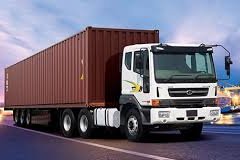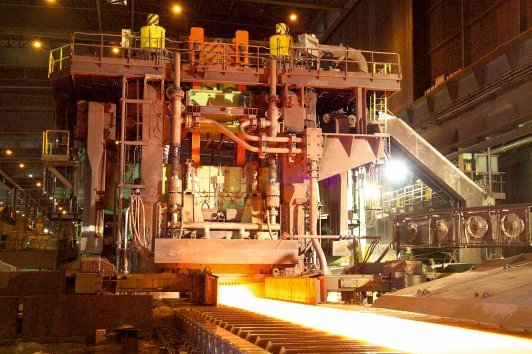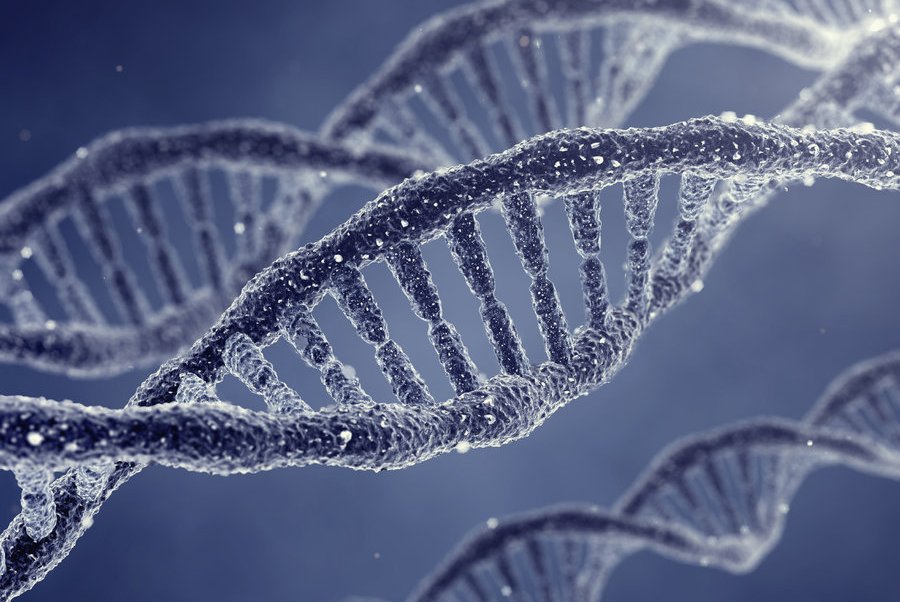|
|
PRODUCTS
in the SOCIO-ENVIRO-ECONOMIC SYSTEM
|
|
|
PRODUCTS HAVE IMPACT ON ALL CAPITALS
|
NATURAL CAPITAL

Essential enabler
|
SOCIAL CAPITAL

Quality of Life
|
ECONOMIC CAPITAL

Wealth / GDP
|
In classical economics there was the idea of 'Factors of Production' ... that is Capital, Land and Labor, where capital was money. Though not part of modern economic conversation, these ideas need to be part of modern thinking and policy formulation. Well before the industrial revolution, Adam Smith wrote not only The Wealth of Nations (full title 'An Inquiry into the Nature and Causes of the Wealth of Nations (1776) but before that a less well-known book titled 'The Theory of Moral Sentiments (1759)' both of which inform not only the thinking that is embedded in economics but is the basis for the TVM initiative.
In TVM the idea of three 'Factors of Production' is reborn as three dimensions of capital; that is an Environmental dimension (that is Natural Capital), a Social dimension and an Economic dimension. For TVM progress is positive when the aggregate of these three dimensions or capitals or state is positive ... something that has been rare in recent decades. Rather, the incentives have been for economic performance to be optimised at the expense of society and the environment with the owners of the economy consolidating wealth and power with everyone else losing out.
PRODUCT is central to the modern economic system. On the one hand it is products that are foundational for quality of life. With product shortage quality of life can be compromised. Another characteristic of product is that product production is central to the way the corporate organizations is organised to generate profit for investors, products for customers and employment for people. These dimensions are tha focus of most economic thinking and analysis.
At the same time, products are also responsible for all sorts of impacts that are ignored in modern conventional financial accounting and reporting. The raw materials that go into the manufacture of products travel a supply chain that has a variety of impacts on both society and the natural environment ... and while these negative impacts in the supply chain are substantial, they are notably absent in conventional ...and regulated ... corporate reporting.
Albeit slowly, the manufacture of products is increasingly being the subject of more comprehensive accounting that goes beyond simply the financial dimension to include also the environment and society.
The way products are used by users is, however, mostly ignored in the sustainability analysis of products. This needs to change.
In addition the post-use waste chain needs to be better understood with meaningful accounting and reporting. Many products are packaged in plastic ... usually a single use plastic that adds significantly to the post use waste chain. Typically this has a tiny cost to the production entity, but has enormous costs in the context of the environment.
Maybe better metrics along the lines of the TVM initiative can be helpful.
|
|
ALL TYPES OF PRODUCTS HAVE IMPACT
|
BASIC MATERIALS

STEEL
|
FOOD PRODUCTS

FRUIT
|
TECH PRODUCTS

APPLE PHONE
|
|
There is a universal system of measuring business performance ... it is profit and return on capital employed. I does not matter if the product is steel, or food or an Apple Phone, the business is successful if it has high profits and growing profits and it has an every improving return on capital employed. For public companies the stock price reflects how well a company is doing on these metrics.
While environmental and social performance metrics are important, they are ignored by the majority of the people who control wealth and make investment decisions. Why would they complicate things, when the current system is reporting record good performance by most of big business ... record profits and massive return on capital employed
|
PEOPLE MAKE DECISIONS ABOUT THE CONSUMPTION OF PRODUCTS
BASICS FOR SURVIVAL

|
MORE FOR BETTER LIFE

|
THE GOOD LIFE

|
The 'market' is usually better than anything else at getting the best balance between production and consumption. This was the conclusion of Adam Smith many years ago and the foundatonal idea still seems to be valid.
The problem is that over time this 'free market' system has been 'gamed' by the actors for their own benefit. This has happened many times since Adam Smith, but the current gaming is more dangerous than in previous times. The key problem is probably that the response from those with oversight responsibility has the pace of the 1970s when the actions are going on at the pace of the 2020s ... and to a great extent those with oversight responsibility are simply too old and out-of-touch with modern technology to be on the curve, let alone ahead of the curve!
|
|
|
PRODUCTS FOR BASIC NEEDS ARE ESSENTIAL
|
FOOD

|
WATER

|
SHELTER

|
ENERGY

|
HEALTH

|
|
A basic amount of consumption is required for an individual and a family to live. A very large percentage of the world's population are living in this way and have a very low standard of living and quality of life. Many, if not most of this population would be hard working and productive if they had the opportunity. This is a failure of leadership as much as anything.
|
|
PRODUCTS ARE NEEDED FOR A DECENT QUALITY OF LIFE
|
Food - Vegetables

|
Food - Meat

|
Housing

|
Clothes

|
Mobility

|
Recreation

|
|
More consumption correlates to a better quality of life up to a certain level. Beyond that level more consumption may well have negative consequences, as for example too much food may result in obesity and diabetes or worse.
|
|
MORE PRODUCT CONSUMPTION GIVES BETTER QUALITY OF LIFE
|
CONSUMPTION

|
PROCESSES

|
MATERIALS

|
ENERGY

|
PAYROLL

|
|
While more product consumption is good for society and quality of life, the production of products amd associated pollution, waste, etc. means that there are also negative impacts on the environment that are generally ignored in policy making and analysis.
|
|
MANY PRODUCTS USED BY ULTRA-RICH HAVE BAD IMPACTS
|
CONSUMPTION

|
AIR TRAVEL

|
YACHTS

|
HUGE MANSIONS

|
TAX HAVENS

|
|
The consumption of products ... goods and services ... by the ultra rich has a high negative impact on the environment and natural capital. This is widely ignored because the production and service associate with the luxury sector is very profitable, and as long as profit it the dominant goal in the socio-enviro-economic system, then the luxury sector will thrive but at the expense of environmental sustainability.
|
TECHNOLOGY HAS CHANGED THE PERFORMANCE OF PRODUCTS
SEE THE PROGRESS MADE IN PASSENGER TRANSPORTATION PRODUCTS
|
HORSE-POWER

|
STEAM-TRAINS

|
AUTOMOBILES

|
HI-SPEED TRAINS

|
AIR TRAVEL

|
|
Consumption is driving the modern economy. It looks like success as long as the depletion of natural resourcs and the degradation of the environment is ignored.There is strong correlation between better quality of life and more consumption in poor economies, but less so in mature rich econmies. Rich economies are increasingly associated with waste, luxury and inefficiency.
|
|
ALSO CARGO TRANSPORTATION / LOGISTICS / SUPPLY CHAIN
|
FREIGHT TRUCK

|
FREIGHT TRAIN

| CONTAINER SHIP

|
AIR CARGO

|
PACKAGE EXPRESS

|
|
Consumption is driving the modern economy. It looks like success as long as the depletion of natural resourcs and the degradation of the environment is ignored.There is strong correlation between better quality of life and more consumption in poor economies, but less so in mature rich econmies. Rich economies are increasingly associated with waste, luxury and inefficiency.
|
CORPORATE ORGANIZATIONS DOMINATE ECONOMIC ACTIVITY
THEIR PRODUCTS ARE RESPONSIBLE FOR SUSTAINABILITY OR NOT!
|
DIGITAL TECH

Google
|
OIL & GAS

ExxonMobil
|
AERO ENGINES

Rolls Royce
|
BANKING

HSBC
|
ENGINEERING
 GE
GE
|
FOOD
 Unilever
Unilever
|
|
Most of the global economy comprises products that are produced by very big organizations that are complex with multiple factories in many different locations, and supply chains that span the globe. It is not easy to understand these companies in a way that makes it possible to hold them accountable for their behavior. Nevertheless, despite their complexity, they are able to communicate their profit performance to investors, but not their social impact nor their environmental impact, even where these are material. This has to change.
|
PROCESSES IN FACTORIES PRODUCE PRODUCTS
WHAT IS THE IMPACT ON SOCIETY AND THE ENVIRONMENT?
|
MINING

|
LOGISTICS

|
ENERGY

|
ELECTRICITY

|
PRODUCTION

|
OIL REFINERY

|
|
Every sector, every industry, has become very specialized and over a long period of time has been optimized for profit performance. Profit performance has been exceptional for decades, but too little attention has been paid to social and environmental issues. This must change. Process improvements are essential and must focus in improving social impact and environmental impact as well as merely being more profitable.
|
|
ALL SECTORS HAVE IMPACT ON SOCIETY AND THE ENVIRONMENT
|
MINING

|
LOGISTICS

|
ENERGY

|
FOOD - Vegetables

|
HOUSING

|
HEALTH

|
AG-GRAIN

|
PRODUCTION

|
REFINERIES

|
FOOD - Meat

|
EDUCATION

|
TECH SECTOR

|
AG-LIVESTOCK

|
RAIL

|
ELECTRICITY

|
CLOTHES

|
MOBILITY

|
HEALTHCARE

|
BANKING

|
INSURANCE

|
REAL ESTATE

|
STOCKS

|
MILITARY

|
???

|
|
Every sector, every industry, has become very specialized and over a long period of time has been optimized for profit performance. Profit performance has been exceptional for decades, but too little attention has been paid to social and environmental issues. This must change. Process improvements are essential and must focus in improving social impact and environmental impact as well as merely being more profitable.
|
|
PROCESS HAS IMPACT ON THE EMBEDDED IMPACTS WITHIN A PRODUCT
|
CONCRETE

Huge polluter
|
STEEL

Made of energy
|
LUMBER

Depleting nature
|
|
WHAT ARE ALL THE IMPACTS FOR THE LIFE CYCLE OF PRODUCTS?
|
NATURE

|
EXTRACTION

|
SUPPLY CHAIN

|
PRODUCTION

|
USE

|
WASTE

|
|
Everything that is used to support a high standard of living and quality of life has a long supply chain, then production and distribution, then use, and then a post use waste chain. For metrics to be meaningful, all of these stages must be brought into account.
|
A CIRCULAR SYSTEM
PRODUCTS START WITH NATURE AND HAVE A LONG LIFE CYCLE
|
NATURE

|
SEA

|
STEEL

|
EATING

|
WASTE

|
RECYCLING

|
NATURE

|
ROAD

|
REFINING

|
CONSUMING

|
LANDFILL

|
RECYCLING

|
EXTRACTION

|
RAIL

|
POLLUTION

|
DRIVING

|
FLOODS

|
NO WASTE

|
- Products enable consumption that improves quality of life.
- The production of products is a critical economic activity and source of profit for companies.
- Production and products are only sustainable if they do not degrade the environment. Most modern industrial process are catastrophically unsustainable.
- Smarter processes are needed together with smarter products, smarter consumers and systems to enable a circular economic model.
|
|













































 GE
GE
 Unilever
Unilever
























































